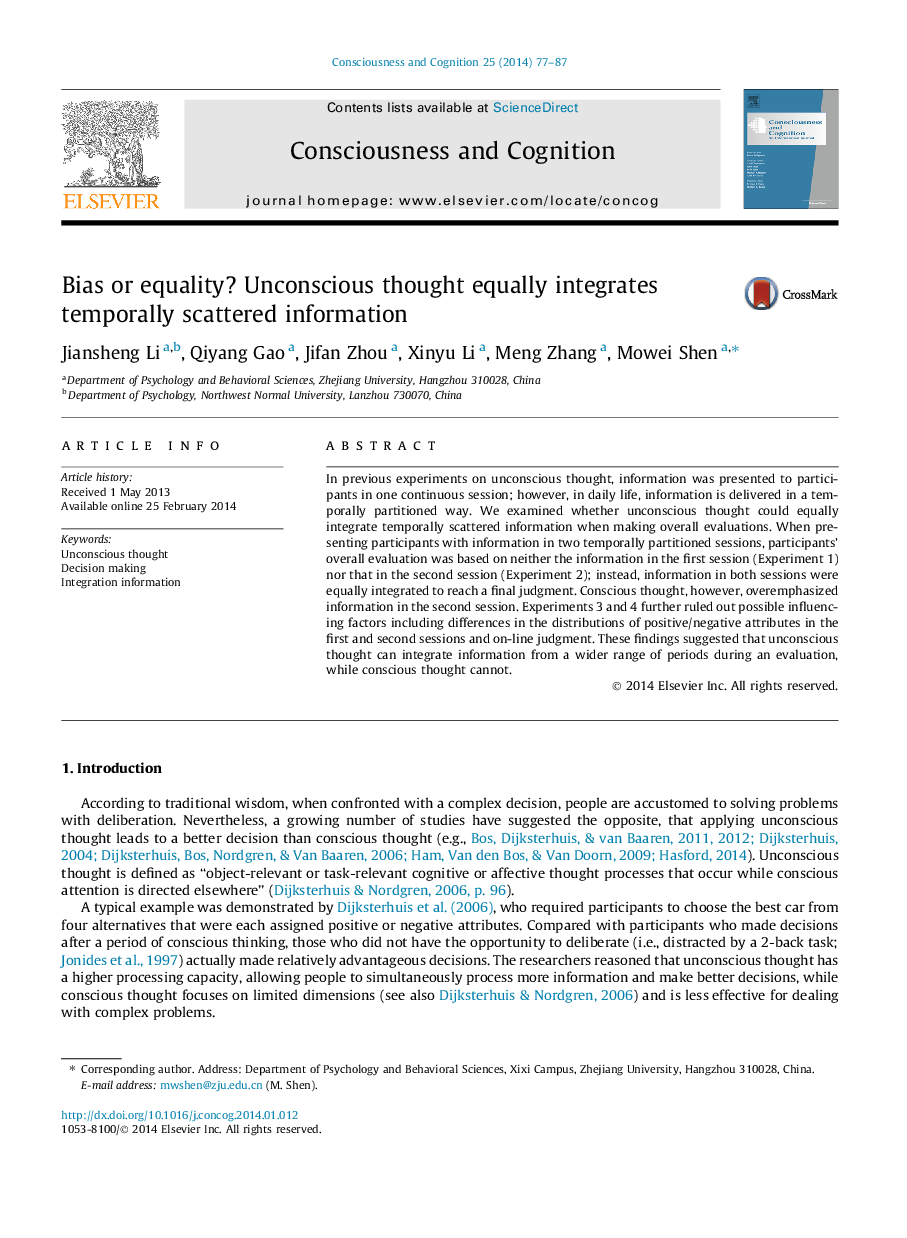| Article ID | Journal | Published Year | Pages | File Type |
|---|---|---|---|---|
| 7290238 | Consciousness and Cognition | 2014 | 11 Pages |
Abstract
In previous experiments on unconscious thought, information was presented to participants in one continuous session; however, in daily life, information is delivered in a temporally partitioned way. We examined whether unconscious thought could equally integrate temporally scattered information when making overall evaluations. When presenting participants with information in two temporally partitioned sessions, participants' overall evaluation was based on neither the information in the first session (Experiment 1) nor that in the second session (Experiment 2); instead, information in both sessions were equally integrated to reach a final judgment. Conscious thought, however, overemphasized information in the second session. Experiments 3 and 4 further ruled out possible influencing factors including differences in the distributions of positive/negative attributes in the first and second sessions and on-line judgment. These findings suggested that unconscious thought can integrate information from a wider range of periods during an evaluation, while conscious thought cannot.
Keywords
Related Topics
Life Sciences
Neuroscience
Cognitive Neuroscience
Authors
Jiansheng Li, Qiyang Gao, Jifan Zhou, Xinyu Li, Meng Zhang, Mowei Shen,
